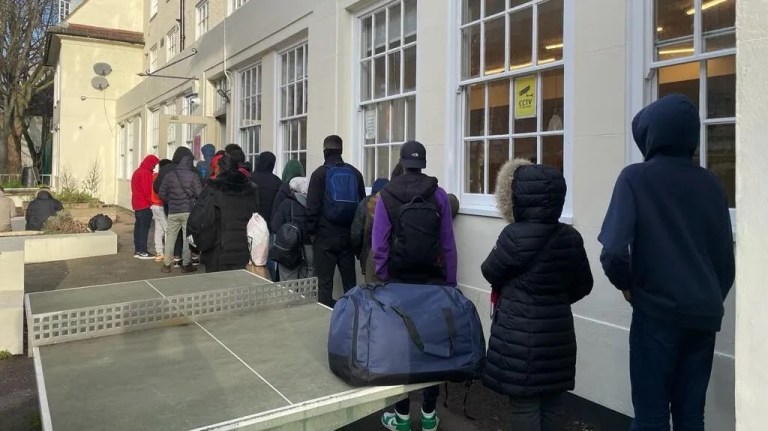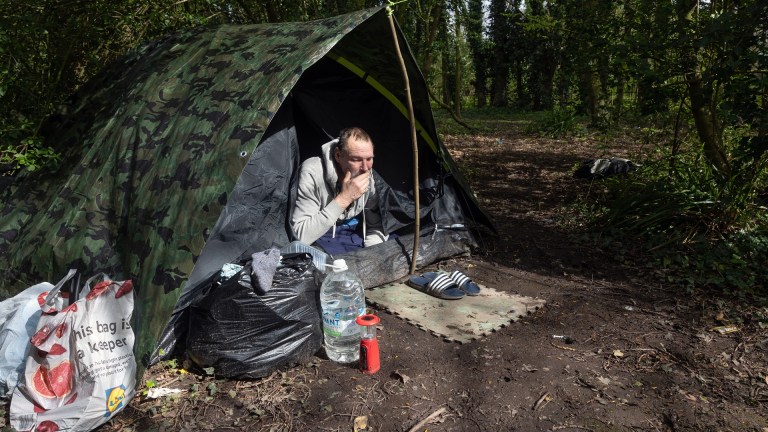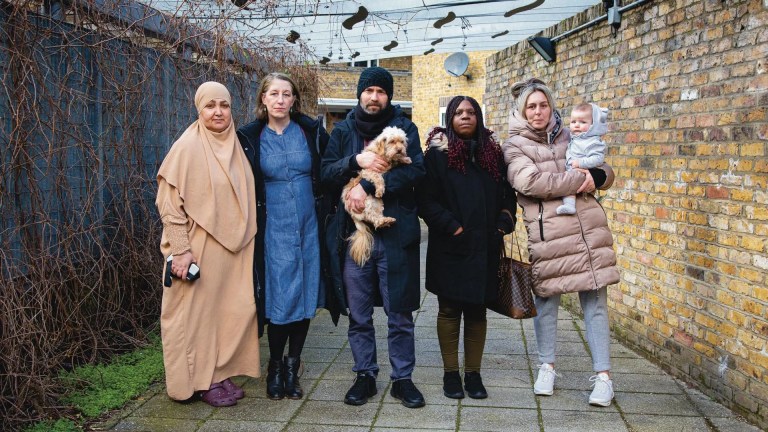A study of US cities proved that families on lower incomes were moving away at a much higher frequency than those who earned more – about half were forced out at some point – but mid-earning households were affected too. “The patterns can be found everywhere,” Gertten says. “Look to Chile, Canada, South Korea, then look at your own city. You’ll see the same problems.” When researchers looked at how many high-income households were moving away from their cities, it was a different story – in San Jose, for example, it was less than half of what researchers expected.
In London, flats and townhouses are sold to international investors before lying empty (government figures showed 22,481 empty homes, worth £10.7bn, in the capital earlier this year.
A stone’s throw from Buckingham Palace, a group of London squatters calling themselves Occupy Belgravia has taken over a £25m house left empty by its owner. And in Push, one expert stands in the middle of a residential street in Kensington, waiting for a car to appear. None do. It’s because no one lives here, he says.
https://www.youtube.com/watch?v=k9Q4So4femM
New York private equity firm Blackstone is one of the companies accused of draining the housing market. Corporations swooped after the 2008 financial crash and bought up properties that had suddenly become cheaply available – mostly family homes. Blackstone entered Sweden in 2014 and within four years was the biggest private owner of affordable housing in the country.
Last week the Danish housing minister Kaare Dybvad said Blackstone was taking advantage of legislative loopholes to push their “unsustainable” rental practices – and promised tougher laws to fight it. Gertten adds: “It’s like mining. They dig a hole, they take all the wealth they can and then they move on.”
Advertising helps fund Big Issue’s mission to end poverty
The undoing of the modern city extends beyond housing. Last year, Network Rail sold thousands of railway arches to Blackstone Property Partners, despite a Big Issue-backed campaign called Guardians of the Arches, which sought to fend off monopolist landlords. Mechanics, hairdressers, cafe owners, metal-shop workers, artists and distillers that occupied the railway property had already been fighting back against unfair rent hikes by Network Rail. The businesses had brought life to run-down areas for many years and were worried new landlords would evict them or push up rent even further. Campaigners have since set up a commercial tenants’ association to fight similar issues right across the UK.
A Blackstone spokesperson said: “Blackstone agrees that there is chronic under-supply and under-investment in housing in several major cities in Europe. We hope to be a part of the solution in helping to address these issues, providing significant long-term capital and expertise to the sector, increasing the supply of high-quality rental housing and seeking to deliver a high standard of service to our residents. In so doing, we are also spurring local economic growth and creating local jobs.
“We have always operated within the existing regulatory frameworks where, in many of the markets you talk about, all leases are and will remain indefinite for all existing tenants.”
Gertten reckons we need a worldwide, multi-sectoral movement to stop the international housing crisis in its tracks. “A shift to seeing housing as a human right, not a commodity” – it’s clarion call to stop cities becoming playgrounds for the rich with locals left at the mercy of powerful financial actors.










